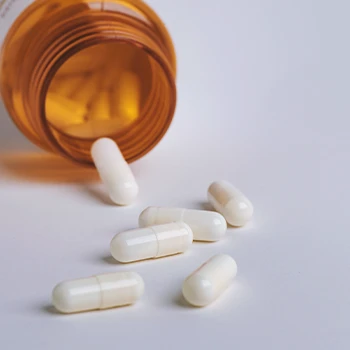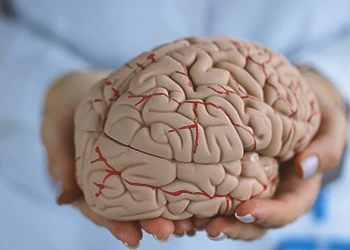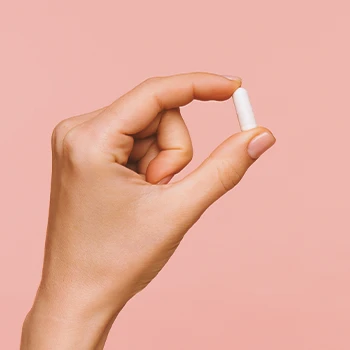As a coach, I spend a lot of time guiding clients in a whole-body fitness approach.
Many of them find declining cognitive functions much harder to manage than physical health and, as such, turn to nootropics like Noopept to boost cognitive health.
I have been asked several times about my opinion on Noopept pills, so to help my clients form an informed opinion, I decided to try it myself, also to study medical publications and other scientific literature before consulting our medical professional about my findings.
If you’re looking to buy Noopept, read this before you do.
Quick Summary
- Noopept, a potent nootropic derived from racetams, is designed to enhance cognitive functions such as memory, focus, and brain health.
- Noopept works by modulating brain chemicals and neurotransmitter systems, potentially improving cognitive performance and offering neuroprotective effects.
- Noopept is more potent than its predecessor, Piracetam, in enhancing central nervous system function, with a significant impact on AMPA, a key glutamate receptor in the brain, according to the study published in PubMed Central.
- Based on my experience, Noopept effectively clears brain fog and enhances cognitive abilities, though starting with a lower dose is advisable to gauge tolerance and minimize side effects.
What is Noopept?

Noopept, a brand name for N-Phenylacetyl-l-prolylglycine ethyl ester, is a powerful nootropic developed from racetams, a class of synthetic cognitive enhancers created in the 1990s. From my experience, Noopept, a derivative of racetams, stands out as a potent cognitive enhancer, significantly more effective than others I've tried.
It's notably more potent than its predecessor, Piracetam, in enhancing central nervous system function.
Both Noopept and Piracetam work by affecting AMPA, a key glutamate receptor in the brain, which plays a crucial role in cognitive processes, according to the study published in PubMed Central [1].
We’ll talk more about glutamate shortly.
Note that this compound (N-phenylacetyl-L-prolylglycine ethyl ester) goes by the following names:
- Ноопепт
- GVS-111
- Noopept
- Noopeptide
Organic brain diseases, like Alzheimer’s disease, cause cognitive decline, ranging from mild cognitive impairment to dementia, and many believe that Noopept can benefit those with age-related cognitive decline and students or healthy adults who need a cognitive enhancer.
How Does Noopept Work?
Noopept works by modulating several brain chemicals and influencing neurotransmitter systems to improve cognitive performance, clear brain fog, and potentially repair brain damage. Having used Noopept, I can attest to its effectiveness in clearing brain fog and enhancing cognitive performance, likely due to its action on brain chemicals.
The Bulletin of Experimental Biology and Medicine states that an oral dosage of Noopept is absorbed in the gastrointestinal tract before circulating the blood and passing through the blood-brain barrier [2].
Most research on Noopept occurs in animal studies because researchers believe that rat brains function similarly to human brains.
In addition to its general neuroprotective properties, Noopept has been observed to influence tau protein phosphorylation, an important process in Alzheimer's disease pathology, suggesting a targeted approach in its therapeutic application.
Let’s look at the specific cognitive function improvement and neuroprotective effect that taking a Noopept supplement might have.
Nerve Growth Factor and Brain-Derived Neurotrophic Factor

Noopept can increase Nerve Growth Factor (NGF) and Brain-Derived Neurotrophic Factor (BDNF), which are both needed for the growth and repair of new brain cells and are essential for learning, cognition, focus, attention, and memory formation, according to the Archives of Medical Science [3].
BDNF is a protein active at the junction of brain cells and aids cell-to-cell communication.
Synapses can change from things like experience or the aging process, so increasing BDNF levels can help learning and memory [4].
Cholinergic Receptors
Noopept may also work by triggering neurotransmitters in the brain, particularly receptors activated by acetylcholine [5].
This process is vital because acetylcholine is critical to many cognitive functions, including memory, learning, and attention [6].
Glutamate
Glutamate is an abundant amino acid and the most common neurotransmitter in the central nervous system and is critical to a healthy brain.
According to the research published in PubMed, Noopept may prevent the release of glutamate into the brain, which can happen when the brain lacks oxygen creating a buildup of glutamate and potentially leading to glutamate toxicity [7].
Too much glutamate harms the brain cells and can cause conditions such as Lou Gehrig’s disease [8].
“Excess glutamate is excitotoxic, meaning that over the long term it can increase neurodegeneration. Learning the skills needed to regulate your brain’s level of excitement is important for your long-term cognition.”
- Jennifer Bramen, PhD
Inhibitory Neurotransmission

Gamma-aminobutyric acid (GABA) is your nervous system’s most common inhibitory neurotransmitter.
Abundant in the brain, It impacts brain activity to regulate areas of anxiety, irritability, concentration, sleep, and depression, according to the Cleveland Clinic [9].
Research shows that by increasing GABA levels, Noopept can reduce stress and anxiety [10].
Noopept Benefits
There are far more animal studies looking at the overall brain health benefits of N-Phenylacetyl-L-prolylglycine ethyl ester than human trials. Based on my personal experience and observations, Noopept has significantly enhanced my verbal fluency and long-term memory, aligning with the findings from animal studies.
Nonetheless, let’s look at some potential benefits:
- Verbal fluency: Noopept may stimulate focus, brain health, and confidence which can significantly contribute to the ability of someone to express themselves [11].
- Long-term memory: Increasing NGF and BDNF improve neuroplasticity and long-term potentiation. This process translates to a healthier brain leading to better long-term memory [12].
- Brain waves: Noopept, like other types of nootropics, may boost alpha and beta brain wave activity, leading to increased focus, creativity, and a sense of calm [13].
- Emotional stability: Because of its effects on brain chemicals like dopamine, Noopept may improve feelings of well-being and reduce stress, anxiety, and depression [14].
- Neuroprotection: It protects brain cells by modulating the levels of glutamate and may also speed up the recovery from brain injuries [15].
A notable aspect of Noopept's action is its capacity to preserve mitochondrial membrane potential under stress conditions induced by Aβ peptides, highlighting its role in maintaining cellular health and preventing neurodegenerative changes.
Dosage

Recommended Noopept dosage ranges from 10-30 mg per day. Starting with a lower dose is advisable to gauge tolerance. In my journey with Noopept, starting with a 10 mg dose and gradually increasing it provided the best balance of benefits and tolerance.
For quicker absorption, Noopept powder can be taken sublingually, allowing it to bypass the digestive system and work faster.
It's noted that Noopept doesn't dissolve easily in water or juice, so many users prefer to take it with a fat-containing meal for better absorption.
Side Effects
There is minimal human research surrounding the safety of Noopept consumption. During my time using Noopept, I experienced mild headaches initially, which is a reminder of the importance of starting with a lower dose.
Given that it is a spin-off of Piracetam, it is logical to conclude there may be some adverse nootropic side effects when using this cognitive enhancer, according to the Innovations in Clinical Neuroscience [16].
Noopept side effects may include:
- Dizziness
- Headaches
- Gastrointestinal issues
- Insomnia
- Irritability
- High blood pressure
Before taking Noopept, you should speak to your doctor about potential adverse drug interactions and discuss your medical history, particularly if you get headaches, seizures, or have memory loss or cognitive disorders.
Legal Status of Noopept

Noopept is prescribed in Russia and some European countries.
However, it's not approved by Canada's FDA and is banned in the UK.
In the United States, Noopept isn't typically found in pharmacies as it's not FDA-regulated.
It is unregulated and not FDA-approved; however, it is available through certain online retailers in capsule and powder form [17].
FAQs
Does Noopept Heal the Brain?
Noopepet may heal the brain. Emerging research shows promise in supporting the benefit of N-Phenylacetyl-l-prolylglycine ethyl ester to certain brain disorders like neurodegenerative diseases, stroke, and brain injury [18].
How Long Can You Take Noopept?
According to some online sources, you can take Noopept up to 56 days. That timeframe is at a dose of 10-30 mg daily. However, Noopept is not FDA-approved in the United States.
Does Noopept Increase Dopamine
Noopept does increase dopamine when used as a treatment for conditions like ischemia, where the body experiences restricted blood flow (and oxygen), leading to decreased dopamine and taurine levels, among other brain chemical alterations [19].
Is Noopept Legal?
Noopept is legal as a prescription medication in some parts of the world, including Russia and parts of Europe. Noopept is not FDA-approved or regulated in the United States.
References:
- https://www.ncbi.nlm.nih.gov/pmc/articles/PMC2872987/
- https://www.researchgate.net/publication/12344171_Pharmacokinetics_of_new_nootropic_acylprolyldipeptide_and_its_penetration_across_the_blood-brain_barrier_after_oral_administration
- https://www.ncbi.nlm.nih.gov/pmc/articles/PMC4697050/
- https://medlineplus.gov/genetics/gene/bdnf/
- https://www.ncbi.nlm.nih.gov/books/NBK526134/
- https://www.britannica.com/science/acetylcholine
- https://pubmed.ncbi.nlm.nih.gov/21476267/
- https://www.rxlist.com/how_do_glutamate_inhibitors_work/drug-class.htm
- https://my.clevelandclinic.org/health/articles/22513-neurotransmitters
- https://pubmed.ncbi.nlm.nih.gov/22232906/
- https://www.ncbi.nlm.nih.gov/pmc/articles/PMC3222775/
- https://www.spandidos-publications.com/10.3892/mmr.2014.2393#
- https://www.healthline.com/health/alpha-brain-waves#different-types-of-brain-waves
- https://www.webmd.com/mental-health/what-is-dopamine
- https://www.healthline.com/nutrition/nootropics#9.-Noopept
- https://www.ncbi.nlm.nih.gov/pmc/articles/PMC4756795/
- https://www.fda.gov/consumers/health-fraud-scams/unproven-alzheimers-disease-products
- https://pubmed.ncbi.nlm.nih.gov/22500312/
- https://link.springer.com/article/10.1134/S1819712419010112
About The Author
You May Also Like






